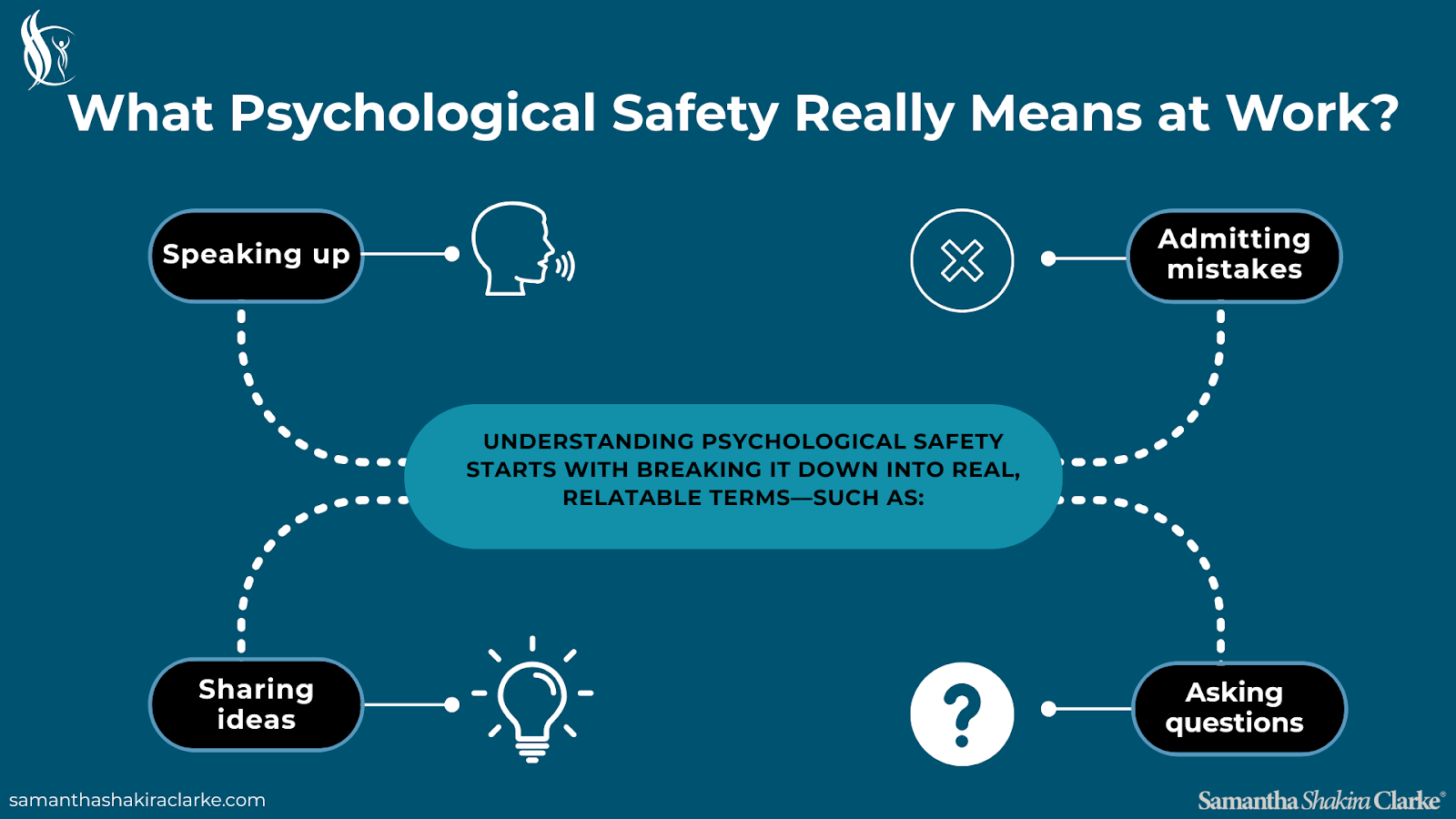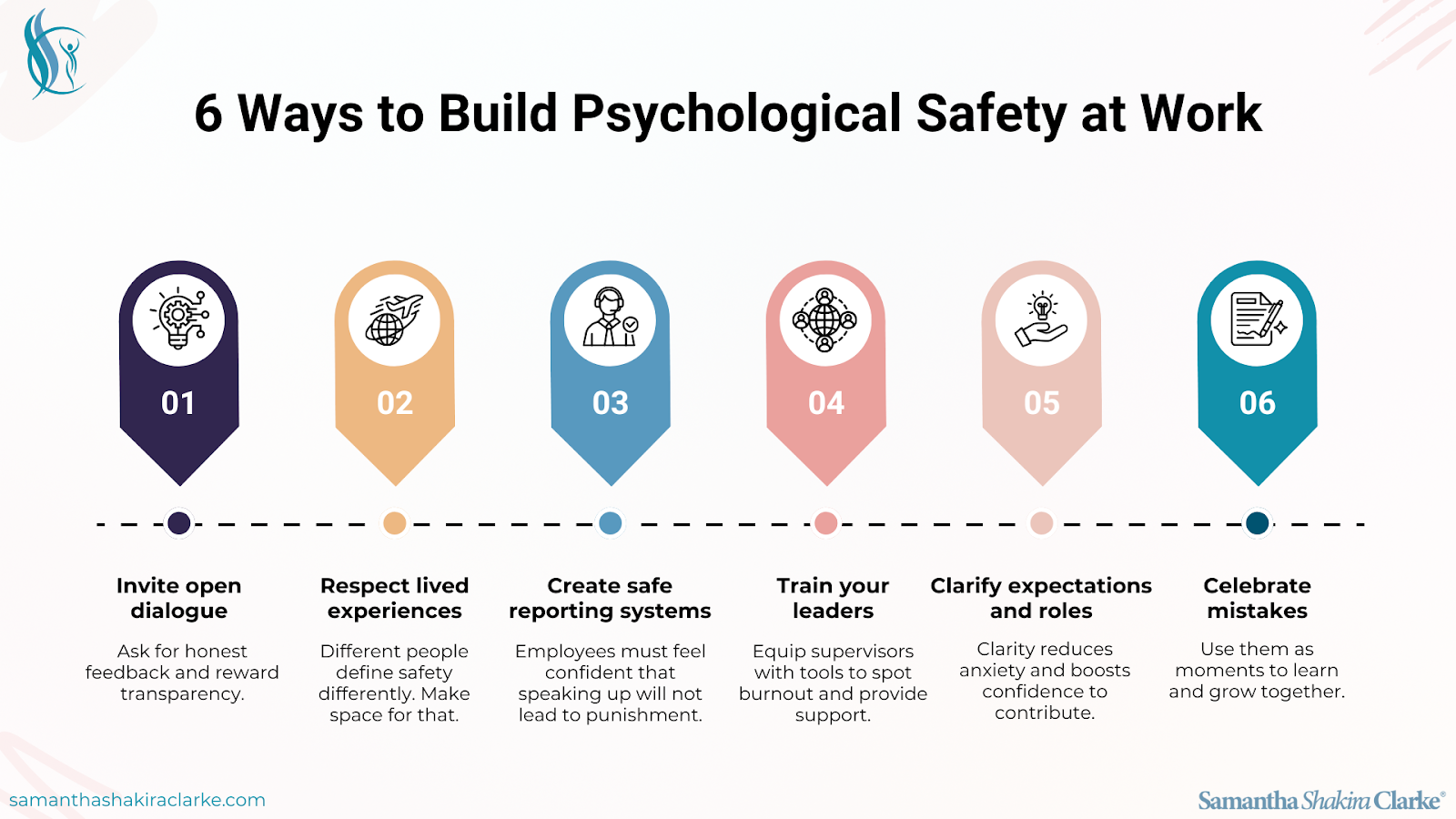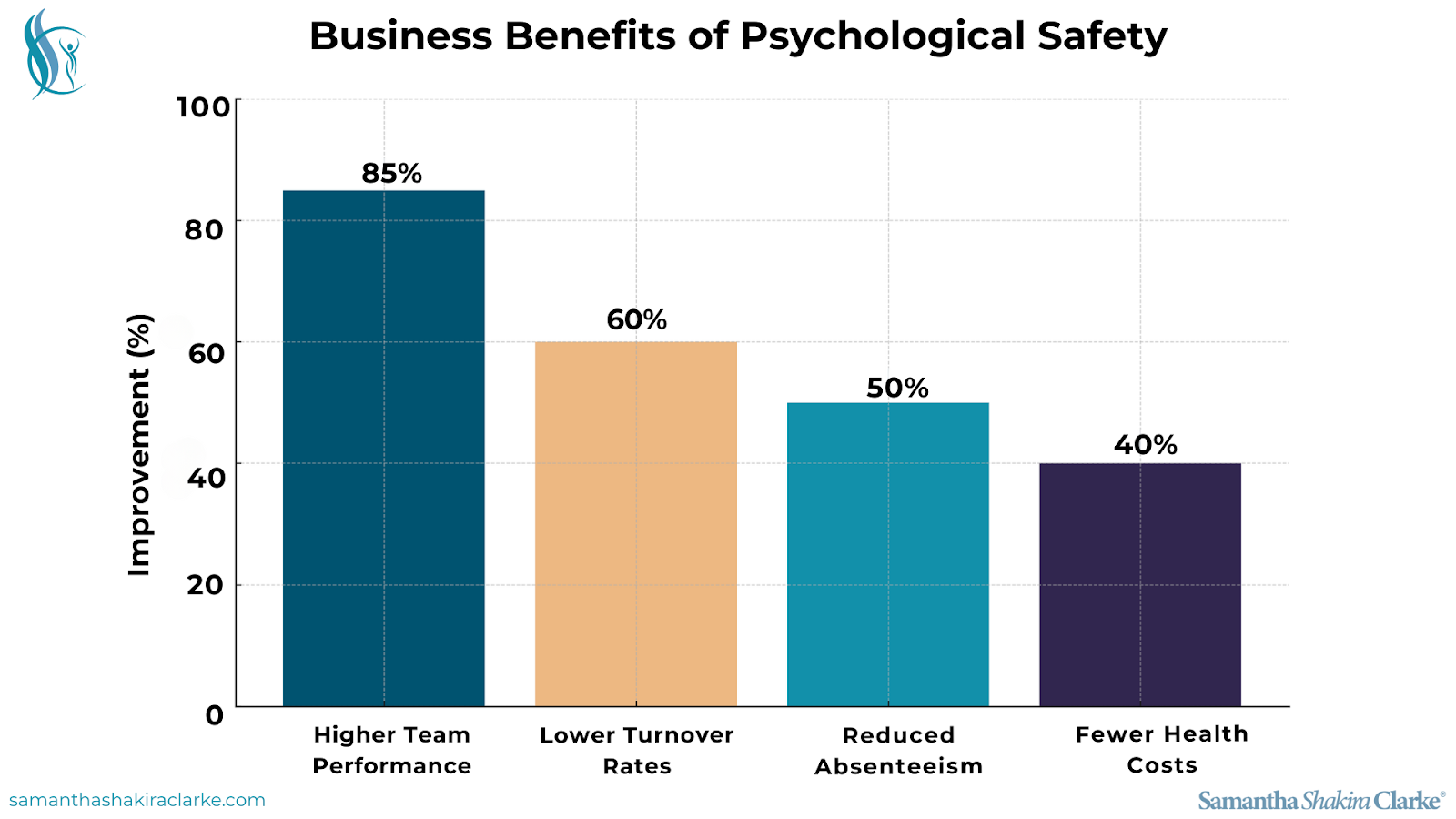 Book Now!
Book Now!Psychological safety has moved from trend to necessity in today’s workplaces. In British Columbia, it is more than just a best practice; it is now a legal responsibility. As WorkSafeBC places greater emphasis on mental health, employers are being asked to rethink what workplace safety really means. It is no longer just about hard hats and hazard signs. Protecting the mental well-being of employees matters just as much. This shift reflects a meaningful cultural change. Emotional safety now stands equally alongside physical safety. For today’s diverse and evolving workforce, feeling safe means more than avoiding harm. It means being respected, heard, and genuinely valued. When that kind of safety is prioritized, trust, innovation, and collaboration begin to thrive.
So, let’s take a closer look at what psychological safety really means, how it’s being enforced in BC, and how you can respond with confidence and compassion.
Psychological safety means that people feel free to speak up, ask questions, and admit mistakes without fearing judgment or punishment. In simple terms, it allows employees to take interpersonal risks without emotional harm. The concept was introduced by Harvard Professor Amy Edmondson, and it has quickly become a key element of modern leadership. Especially in inclusive and multicultural teams, which are common across BC, this kind of safety ensures everyone can contribute openly. It is not about eliminating accountability. Rather, it is about fostering a space where collaboration and creativity can flourish.
If you are looking for more background, explore WorkSafeBC’s definition of psychological safety to understand its full impact.
Psychological Safety has become a workplace essential in BC because people cannot do their best work when they feel unsafe. Moreover, research from the Mental Health Commission of Canada shows that 70% of Canadian workers worry about psychological health in their workplace. Clearly, that is not something to ignore. As burnout, anxiety, and toxic work environments rise, more leaders are realizing that performance is closely tied to emotional well-being. Therefore, making space for trust, inclusion, and respect isn’t a soft skill. It is a strategic one. In a province like British Columbia, where cultural diversity is the norm, this becomes even more important. People from different backgrounds may interpret safety in different ways. Consequently, psychological safety must be intentional, not accidental.
Want more on this? Check out our post on “Beating Burnout: Are You at Risk?” to understand how mental strain shows up at work.

WorkSafeBC now treats psychological safety as part of your legal duty. This means employers are expected to prevent and manage risks like bullying, harassment, toxic workloads, and unresolved stress. These are now recognized as legitimate workplace hazards. Additionally, through the Planned Inspectional Program, inspections are underway across the province. Inspectors are checking whether workplaces are addressing psychological risks, not just physical ones. As a result, compliance now includes emotional safety practices. You cannot just say your team is valued. You must show it. Otherwise, consequences could follow. To stay ahead, you need clear practices and consistent leadership behavior.
You now carry responsibility for protecting mental well-being on the same level as physical safety. For leaders, this is not just about attending a training session. It is about building a culture where people feel safe, supported, and empowered to speak.
Here are a few steps that help bridge that gap:
Employers who fall short on this may face more than disengagement. They may also face compliance consequences. If you need support to adapt, contact SSC Corporate & Personal Wellness for leadership training and culture coaching that aligns with WorkSafeBC’s guidelines.
Start by listening. Then, follow up with real action and stay consistent. Creating a psychologically safe space does not require a major overhaul. Often, it begins with small habits and better conversations. While policies are important, it is your team’s daily experience that determines whether they feel safe. That includes how feedback is given, how mistakes are handled, and how concerns are addressed.
Here are six practical actions you can begin with right away:
Invite open dialogue
Ask for honest feedback and reward transparency.
Respect lived experiences
Different people define safety differently. Make space for that.
Train your leaders
Equip supervisors with tools to spot burnout and provide support.
Create safe reporting systems
Employees must feel confident that speaking up will not lead to punishment.
Clarify expectations and roles
Uncertainty creates anxiety. When people understand their responsibilities, they’re more confident to contribute.
Celebrate mistakes
Use them as moments to learn and grow together.

Need a structure to start with? Explore WorkSafeBC’s Psychological Health and Safety Management Tool.
Psychological safety drives performance, plain and simple. It helps teams innovate, take risks, and adapt faster. According to Google’s Project Aristotle, Psychological safety was the single biggest factor behind high-performing teams. In addition, workplaces with strong psychological safety see lower absenteeism, less turnover, and reduced health care costs. So, it is not only about doing the right thing, but it is also about doing the smart thing. Especially in BC, where employees seek flexibility, inclusion, and purpose, companies that lead with care will attract and retain top talent.
Want more workplace wellness strategies? Visit our blog on “How to Practice Mindful Movement in Everyday Life.”

These statistics are backed by credible research on workplace mental health. According to Google’s Project Aristotle, psychological safety was identified as the single most important factor in creating high-performing teams, contributing to an 85% increase in team effectiveness. A report from Deloitte Insights found that organizations that invest in mental health initiatives see a 60% reduction in employee turnover and up to 40% fewer healthcare costs, due to lower benefit claims and disability-related expenses. Additionally, the Mental Health Commission of Canada reports that psychologically safe workplaces experience up to 50% less absenteeism, further reinforcing the connection between emotional well-being and organizational performance.
Psychological safety is no longer optional. In BC, it is a legal requirement and a cultural expectation. Supporting your team’s emotional health helps you meet WorkSafeBC’s standards and build a more loyal, resilient workforce. At SSC Corporate & Personal Wellness, we help teams shift from reactive to proactive through resilience training, team development, and executive coaching. Every organization is different. That is why we tailor our support to your culture and goals. Whether you are managing a hybrid team or navigating new responsibilities as a leader, we are here to help you build trust from the inside out. When people feel safe, they are more engaged, more creative, and more committed.
Ready to turn compliance into culture and workplace wellness into your competitive advantage? Let’s make it happen together. Connect with SSC Corporate & Personal Wellness to create an environment where your people feel safe, supported, and heard. Whether you’re responding to WorkSafeBC’s psychological safety standards, navigating leadership challenges, or working to build a more resilient and inclusive team, we offer practical tools and culturally mindful strategies tailored for British Columbia workplaces. We also happen to have a highly popular session specifically on, you guessed it, Psychological Safety.
Email us directly at team@samanthashakiraclarke.com or reach out through our contact form to get started. You can also get in touch by booking a discovery call. Let’s build workplaces that feel as good as they function, and we’ll support you every step of the way.

